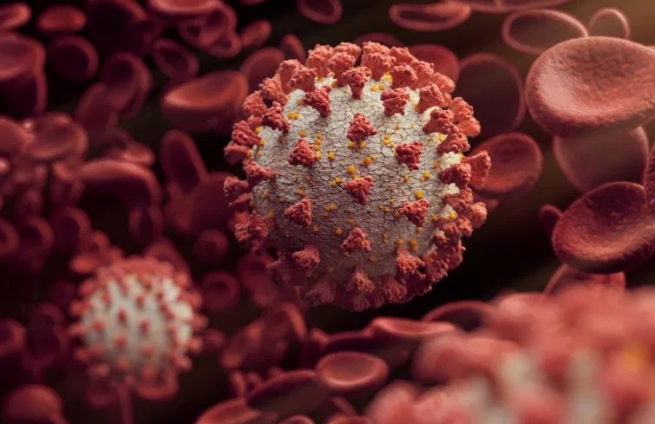Amidst the emerging cases of new Covid-19 variants, the World Health Organisation, WHO, has charged African governments to step up their testing and sequencing efforts in order to enable quick spotting, tracking and tackling of the variants as soon as they appear.
The call came as the cumulative COVID-19 cases in Africa topped three million with daily case numbers exceeding the first wave peak.
Making the call on Thursday, the World Health Organisation, WHO, Regional Director for Africa, Dr Matshidiso Moeti, said revamped public health measures are ever more critical to avert a runaway surge in infections that could stretch health facilities to the breaking point.
“We call on all countries to increase testing and sequencing of the virus to swiftly spot, track and tackle new Covid-19 variants as soon as they appear.
To defeat an agile, adaptive, and relentless enemy, we must know and understand its every move, and double down on what we know works best against all variants of the virus.
” Moeti who spoke during a virtual press conference facilitated by APO Group, warned against complacency. “We must not become complacent.
We must persist with the proven public health measures that helped stop the spread of the virus during the first wave – that’s physical distancing, constant hand washing, and wearing masks in public spaces.”
Moeti observed that an average of 25,223 cases was reported each day between the 28th of December 2020 and the 10th of January, 2021 in Africa, which is nearly 39 percent higher than the July 2020 two-week peak of 18,104 daily average cases.
She noted that overall cases in the region have risen steadily since mid-September 2020, with a steeper rise from late November. In addition, a new variant of the virus called 501Y.
V2 is circulating widely in South Africa, accounting for most of the new infections during the second wave. “Mutations of the virus are unsurprising as the more the pandemic spreads the higher the likelihood of changes.
However, preliminary analysis finds the 501Y.V2 variation to be more transmissible. Genomic sequencing has found the variant present in Botswana, the Gambia, and Zambia.”
Although deeper investigations are underway to fully understand the epidemiological implications, Moeti said at present there are no indications the new variant increases the severity of the disease.
“Even if the new variant is not more virulent, a virus that can spread more easily will put further strain on hospitals and health workers who are in many cases already overstretched.
“This is a stark reminder that the virus is relentless, that it still presents a manifest threat, and that our war is far from won.”
Nigeria is currently investigating a variant identified in samples collected in August and October 2020 and while for now there are no reports of the Covid-19 variant circulating in the UK, cropping up in the African region, Moeti said further investigation is needed.
With support from the WHO, African countries are reinforcing genome sequencing efforts, which are key to finding and understanding new variants as they emerge and to help blunt their impact.
The WHO and the Africa Centres for Disease Control and Prevention network of genome sequencing laboratories in Africa are supporting governments with training and data analysis on genome sequencing, bioinformatics, and technical expertise.
The WHO has also developed guidance on containing new variants and is assisting countries to manage and safely transport samples for sequencing and analysis.
While much progress is being made in building genome sequencing capacity, the more than 5000 sequences which have been conducted so far in the region account for just 2 percent of global sequencing data.
As of 4.40 pm on Thursday, South Africa, with 1,278,303 confirmed cases and 35,140 deaths was the most affected African country followed by Morocco with 455,055 cases and 7,810 deaths.
In third place was Tunisia with 168,568 cases and 5,415 deaths. Nigeria with 103,999 cases and 1,382 deaths was in fifth place.
Latest Stories
-
Kumasi Airport City to revolutionise skyline in 2 years, foster economic growth
4 minutes -
25 hectares of degraded lands in Ghana, Kenya to be restored under EMBRACE project
11 minutes -
Police launch investigation into social media threats and obstruction of duty
22 minutes -
ECG Ashanti Substation receives support to resolve high-voltage breaker mechanism fault at Supply Point Ridge
23 minutes -
Dikan Center launches ‘HerPress’ fellowship to empower Ghana’s female journalists
28 minutes -
Former US Tennis Association President to lead Tennis Clinic in Ghana
41 minutes -
15 media professionals begin journey in groundbreaking Ghana-China fellowship
42 minutes -
Liverpool sign Wirtz for club record fee
47 minutes -
No one should be arrested without evidence – Justice Ackaah-Boafo
51 minutes -
Mike Eghan’s family informs former President Kufuor of his passing
60 minutes -
Top 15 reasons to hit the Ecobank-JoyNews Habitat Fair at Achimota Mall today
1 hour -
Judges must be paid well to make legal profession attractive – Supreme Court nominee
1 hour -
Unilever Ghana unveils new chapter for Pepsodent Charcoal with “Crafting Smiles” experience
2 hours -
18,000 babies are born annually with sickle cell disease in Ghana – Dr Kwarley Asare
2 hours -
World Sickle Cell Day: Ghana Institute of Clinical Genetics urges collective action as it marks 50 years of sickle cell care
2 hours

